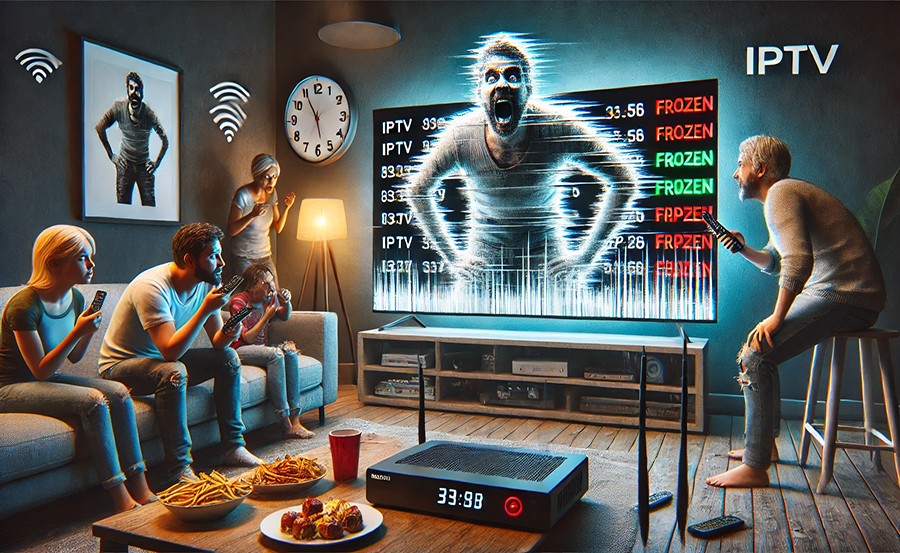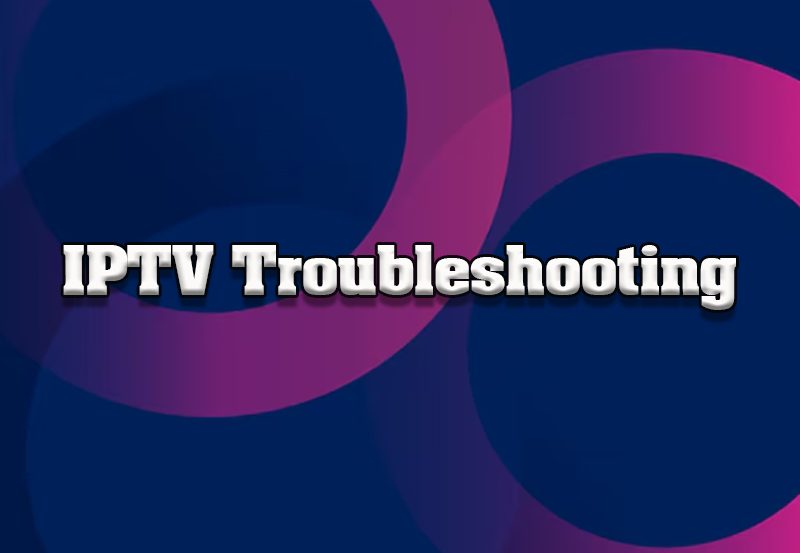Imagine settling in for an epic Primetime match only to have the game freeze right in the climax. IPTV buffering issues can be a fan’s nightmare; an issue that frustrates both avid sports enthusiasts and general streamers alike. This comprehensive guide explores the common technical culprits behind IPTV buffering and offers solutions to keep your streaming smooth and enjoyable.
Understanding IPTV and the Streaming Process
IPTV, or Internet Protocol Television, delivers content over the internet rather than traditional means like cable or satellite. It’s fast becoming the go-to for sports fans looking for the best experiences. But when technology hiccups occur, it can disrupt what should be a seamless viewing journey.
Stream buffering particularly affects those using the best IPTV for sports. Let’s unravel how streaming works to better understand where it might go wrong.
How IPTV Streaming Works
The IPTV process involves several key steps: content acquisition, encoding, streaming, and finally, playback on your device. Each step, while straightforward, involves complex technology that can introduce issues if any part malfunctions.
Think of it like a relay race; each step must happen smoothly for you to experience interruption-free streaming.
The Role of Internet Speed and Quality
A stable and fast internet connection forms the backbone of a good IPTV experience. Insufficient speed often leads to buffering or even stream failure. Top IPTV services typically recommend a minimum speed to handle high-definition content effectively.
It’s crucial to evaluate your current setup, especially if streaming live sports or high-quality videos.
Common Causes of IPTV Buffering
Insufficient Bandwidth
Bandwidth refers to the capacity of your internet connection to handle data. If multiple devices are connected or large downloads are running, it could pinch the bandwidth available for your IPTV stream.
Consider your household usage patterns to ensure enough bandwidth is set aside for a seamless experience.
Network Hardware Limitations
Outdated routers or misconfigured network settings can bottleneck your streaming quality. A modern, well-configured router can significantly enhance your IPTV viewing journey.
Regular maintenance, like firmware updates, can prevent many hardware-related woes.
Server-Side Problems
Not all buffering issues stem from your home network. Sometimes, the problem resides with the IPTV provider’s server. Top IPTV services usually boast robust server infrastructure, but it’s worth ensuring your selected provider can proudly showcase their server reliability.
Always select providers with a reputation for excellent server management.
Solutions to Improved IPTV Streaming
Boosting Your Internet Speed
- Consider upgrading your internet plan.
- Use an ethernet cable instead of Wi-Fi for a more stable connection.
Making these adjustments can often resolve buffering issues without any additional cost.
Optimizing Your Home Network
Check your router’s settings and ensure it’s optimized for streaming. This might include activating quality-of-service (QoS) settings, ensuring firmware is up-to-date, and ensuring good router placement for optimal signal strength.
A little bit of tinkering here can often lead to much smoother streaming experiences.
Regularly Update IPTV Apps
IPTV applications frequently receive updates focused on improving performance and fixing bugs. Ensure the platform or application used for streaming is updated regularly to take advantage of these improvements.
Staying current in this regard is as important as updating any other piece of software technology you rely on daily.
Avoiding Common Pitfalls
Selecting the Right IPTV Provider
Your choice of IPTV service can significantly impact your viewing quality. Look for reputable providers that offer reliable service, responsive customer support, and minimal downtime to elevate your IPTV viewing journey.
Always vet potential providers by reading reviews and ratings before committing.
Maintaining Your Network Devices
Regular maintenance of network devices can prevent a host of buffering issues. This includes cleaning for dust build-up, checking cables for wear, and ensuring your network stays secure from potential external interference.
Occasional maintenance checks can prolong the lifespan and performance of your equipment.
Creating the Perfect Streaming Environment
Setting up a dedicated and optimized space for casual or sports streaming can enhance your overall IPTV experience. This entails not just technological setups but also arranging your viewing area to ensure comfort and convenience. Buy 1 Year IPTV Subscription and Enjoy Unlimited Content
Ergonomic Viewing Setup
A comfortable setup can quite literally transform your viewing experience. Consider seating arrangements such that neck and eye strain are minimized, and invest in quality sound systems if audio quality matters to you.
Aesthetic Enhancements for the Ultimate Feel
Ambient lighting, quality speakers, and a comfortable couch can make a significant difference in how you watch your game or movie. Turn your viewing area into a personal theater for that ultimate IPTV experience.
Beyond Buffers: Exciting Developments in IPTV Technology
The world of IPTV is ever-evolving. Emerging technologies promise an even smoother future, with developments in codecs, transmission techniques, and content delivery networks continually shifting the landscape.
Looking to the Future
The introduction of 5G technology, AI-driven optimizations, and enhanced content curation all contribute to swiftly improving IPTV services. Keeping pace with these changes can unlock even richer viewing possibilities.
Stay informed about these advancements to maintain an optimal streaming setup.
Interactive Features and Personalization
IPTV platforms are increasingly offering personalized experiences, allowing users to customize content recommendations and participate in interactive features. This personalized approach ensures streams are both relevant and engaging.
FAQ

What is the minimum internet speed I need for buffer-free IPTV streaming?
Generally, a speed of at least 25 Mbps is recommended for HD streaming, ensuring a buffer-free experience under normal conditions. This speed should support most top IPTV services without interruptions.
Can using an outdated IPTV app cause buffering?
Yes, outdated IPTV apps can cause performance issues, including buffering. Regular updates often include fixes for known bugs and enhancements to streamline the user experience.
Are wired connections better than Wi-Fi for streaming IPTV?
Wired connections are typically more stable and offer faster speeds compared to Wi-Fi, which can be subject to signal interference. For uninterrupted streaming, consider a wired connection wherever possible.
How can network settings impact IPTV streaming?
Network settings can significantly affect streaming quality. Enabling QoS, updating firmware, and ensuring your network is secure from unauthorized access are all actions that can improve your IPTV experience.
Why do some IPTV streams buffer more than others?
Buffering can be a result of server load, network congestion, or deficient bandwidth allocation from your provider. Choosing the best IPTV for sports with reliable servers can minimize these issues.
Does watching IPTV on multiple devices increase buffering chances?
Yes, streaming on multiple devices can use up available bandwidth, leading to buffering. Ensure your service can handle multiple streams or allocate sufficient bandwidth for concurrent users.
What hardware improvements can reduce IPTV buffering?
Upgrading to a high-performance router, using quality ethernet cables, and ensuring hardware is regularly maintained can significantly reduce buffering, improving the seamlessness of your IPTV streams.
Step-by-Step Guide to Resolving M3U Links Not Playing in VLC





